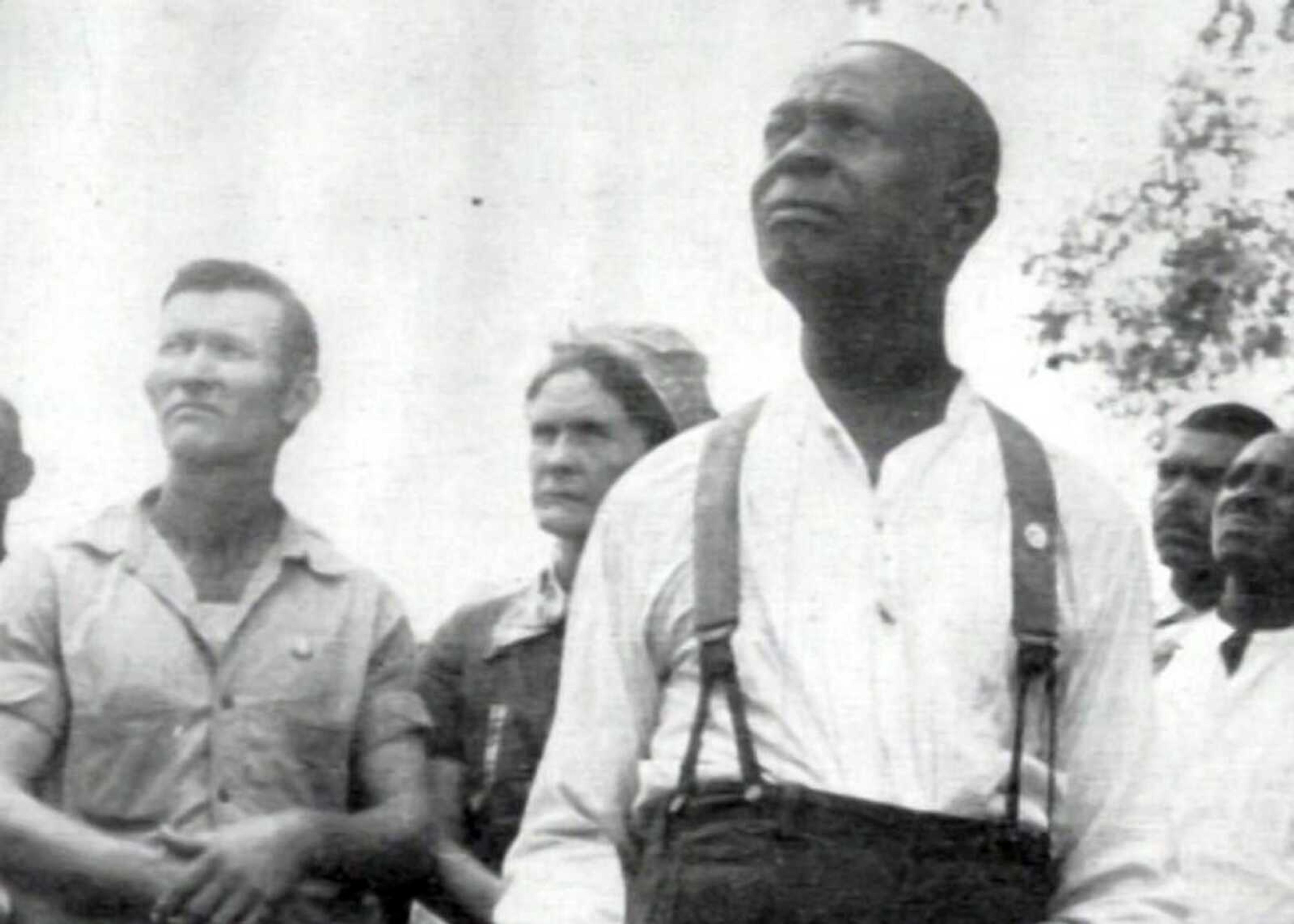Film on Mississippi County sharecropper protest to have free screening
CHARLESTON, Mo. -- An Emmy-Award-winning documentary about Missouri's sharecropper protest of 1939 will be available for viewing later this month at Charleston High School. The community is invited to a free showing of the hour-long film, "Oh Freedom After While," at 7 p.m. Jan. 27 at Charleston High School's Clara Drinkwater Newnam Auditorium...
CHARLESTON, Mo. -- An Emmy-Award-winning documentary about Missouri's sharecropper protest of 1939 will be available for viewing later this month at Charleston High School.
The community is invited to a free showing of the hour-long film, "Oh Freedom After While," at 7 p.m. Jan. 27 at Charleston High School's Clara Drinkwater Newnam Auditorium.
"This important 1999 film chronicles an event that occurred 83 winters ago just outside of Charleston," said Hunter Ely, Mississippi County Historical Society board member.
"It caused the U.S. Congress to finally address the plight of farmworkers, specifically 'sharecroppers,' who had suffered unbearably during the Great Depression."
On a winter morning in January 1939, more than 1,000 of these farm labor family members moved onto the highway between Charleston and Wyatt, Missouri, to protest their plight. With only their few belongings with them, they camped out on the road in crudely fashioned tents in that particularly harsh winter.
With cotton prices plummeting, the government had paid landowners to destroy one-third of their cotton crop to help prop up the price of cotton. As a result, landowners pushed thousands of unneeded sharecroppers, landless farm laborers, off farms in Southeast Missouri and other cotton-growing states. With nowhere to go, many of the county's sharecroppers followed the lead of a local pastor and sharecropper, the Rev. Owen Whitfield, and joined a nonviolent roadside protest to demand relief.
"The results of this inspired unique protest reverberate still today," Ely said. "It had an impact on the modeling of future social welfare protests, including later civil rights movement activities across the nation."
Trevor Harris, a podcaster from Columbia, Missouri, and producer of the "Mo' Curious" podcast series of "oral histories of forgotten, unknown, and yet important aspects of the history of Missouri," has joined the Mississippi County Historical Society in sponsoring this viewing.
In addition, Harris and the Charleston High School have scheduled a select group of students to interview seven knowledgeable community members the following day about the legacy of this event and other significant 20th Century historical moments that helped shape today's Charleston and Mississippi County, according to Ely. The students will assist with editing the resulting recordings into a finished product for sharing on social media with the community.
Use of masks and social distancing encouraged.
For more information, call Ely at (573) 233-9269 or Harris at (573) 443-0926.
Connect with the Southeast Missourian Newsroom:
For corrections to this story or other insights for the editor, click here. To submit a letter to the editor, click here. To learn about the Southeast Missourian’s AI Policy, click here.








